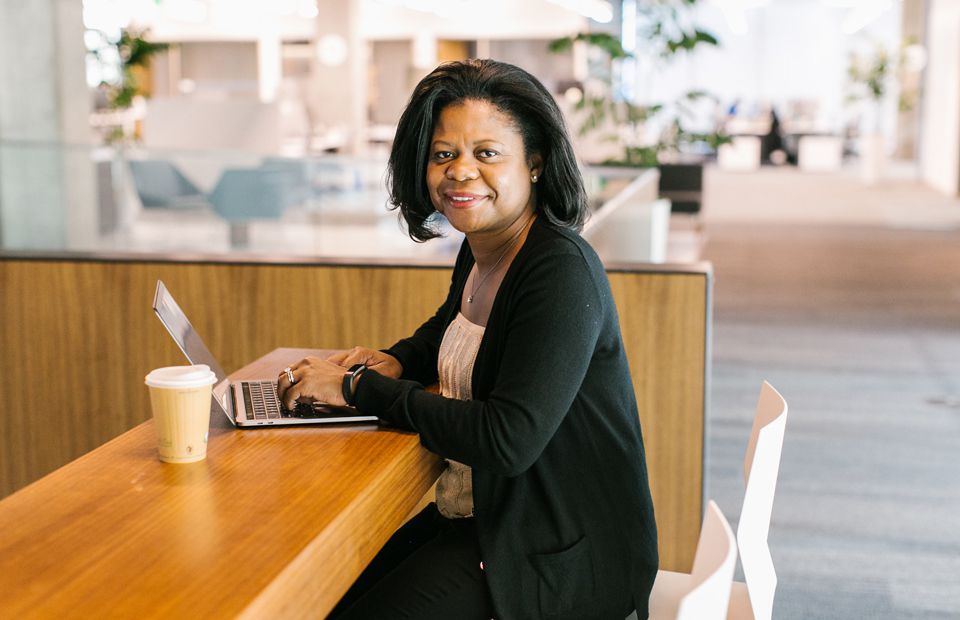Merline Saintil is currently the Head of Operations for Product & Technology at Intuit—but she actually just refers to that as her "day job." She also holds positions on the Board of Directors for Watermark—a non-profit empowering women executives—and Banner Bank. Saintil has a knack for striking the ideal balance between self-assured and self-aware—she openly takes credit for her present and past accomplishments without losing sight of the opportunities and support she received to make them happen. But it's her intuition that seems to be the common thread throughout her career. In most of her stories, there's a sense that she trusted her gut when she needed to most—whether that's knowing when to take risks to better herself or to better help others.
When I have a conversation about where I am today, it’s always important to start from where I began—which is very humble beginnings. I came to the US at the age of five and spoke no English, just Creole or French, and I think that set the tone for how, as a kid, you develop character. I had to do that pretty early on when I was ridiculed because I couldn’t speak any English. I think that gave me focus and perspective.
[Those early years of bullying] shaped what I care about today—which is helping advocate and support and advance our technical women. I remember when I thought of what I wanted to be when I grew up, it was a diplomat. I would say even part of my job today is being a diplomat, even though I’m in the tech space.
My first love, though, was math—my father was a professor—so, despite not being exposed to computers early on, I do think having a STEM background helped me when I eventually stumbled onto computer science in college. I happened to be at a career fair—it was freshman year and I was a math major—and I [would end up] getting a co-op (which is a much longer internship) at a software company. That launched my trajectory into computer science.
On Her Early Career
I began my career in the Bay Area at Sun Microsystems, which is no longer here, but it’s where Facebook began, and it’s where I started my career. I was there for a number of years and then moved to Adobe where I really honed my skills.
I’ve worked at companies like PayPal and Joyent—it’s just been opportunity after opportunity to do amazing work at a variety of companies. [At Yahoo], I was leading mobile and emerging products, which is kind of like a startup within Yahoo. It was an exciting time. There was phenomenal growth—we went from like 50 employees to about 500 or 600 within 18 months. It was fun.
On Transitioning to Intuit
For me, it’s always been about doing meaningful work and being able to do that as part of what I do day-to-day. Part of what I love about Intuit is its mission and [its] values of power and prosperity around the world. So when an opportunity to report to the EVP and CTO of the company came along, I was able to bring all the skills that I’d been gathering along the way and combine them in a role that was well-suited. We also shared a passion for supporting tech women. Our CTO's mom taught him computer science, so we instantly bonded over his support and advocacy for women in tech. It’s just been a great, great partnership, the four years I’ve been here.
On Being a Woman—and Woman of Color—in Male-Dominated Fields
Part of what’s shaped me is that I've focused on being there, being excellent, and doing the work and less on being the only person. I happen to be a black female, so that has a nuance to it, but I never really let any of that determine where I belonged. I get my foot in the door and I do the work, and that’s what I try to focus on. Even to this day, when I’m the only black person and only the second woman on a public board, that’s not really how I think about things. I think more about, “Here’s an opportunity in front of me—how can I make the best of it?"
Nothing overt [e.g. bias, sexism, descrimination] has happened to me that I can recall, other than being ridiculed when I was much younger. But one of the things I’ve been reflecting on recently is that one can often be underestimated. For me, it’s about focusing on the opportunities that come to you. It can be a lot harder, being underestimated, but it’s your opportunity to knock it out of the park and prove the naysayers wrong. That’s been more thematic for me than anything specific.
Her Best Advice to Leaders
I became a team leader ultimately at Sun Microsystems, which is how I realized that I love to build products, with a team of people. I started as a team leader. It wasn’t an official manager role, but I got to help my manager manage people. I got “the bug” there.
I would say my best advice is to truly care about people. I think there’s no “secret formula” because everyone is different. Some people need more coaching, more advice, or more technical advice—you’ll encounter different people—but I would say that if you ultimately care about people, you will experiment and people will see that you care. That, to me, is the foundation. Coaching and growing people, doing what you say and saying what you do—all that stuff that we learn about being leaders—will come naturally. But it starts with truly caring about people.
On Building Your Brand
I am a big believer in sending the elevator back down. I have been fortunate enough that many people have invested in me, and I stand on the shoulders of many people today. It’s really important for me to give back and pay it forward. My day job is running operations, but I also have a full-time woman tech leader on my team, and so my support of women in technology and what I do is an extension of my work, naturally. It’s one of those things where I’ve been able to carve out where work and life blend together.
My other tip is to just start. Even if you can just do one night a month getting out there. That’s what I often tell engineers—especially women engineers. It’s good to be excellent, but you’ve got to make sure it’s not a well-guarded secret. Getting out there, getting a brand—whether it’s talking about your work or attending a panel or conference—you have to not stay inside. Eventually, you want to get out there and become a leader, because it is about leadership and having that perspective. Or knowing your perspective on something.
On Serving on Boards
There’s nothing more powerful than sitting on a board—but that’s not the reason to do it. You get to see an outside perspective—it’s outside-in learning, and it’s something that [Intuit] encourages.
I often like to tell this story: I gave this as one of the things I wanted to do (joining a public company board) to my boss, and I asked him to pay for me to go to Stanford Directors' College, which would prepare me for that. Not only did he say yes, but he came along with me.
I just think that’s a testament to making sure you ask for what you want. I am a life learner. I am constantly thinking, “How can I be a better version of myself?” and, for me, sitting on a board gets me to do that. I don’t know much about banking, but I do have perspective on technology, which is one of the reasons they were interested in me. I made the connection, and the rest is history.
On How Intuit is Working to Narrow the Gender Divide
One of the things I'm encouraging not only Silicon Valley companies, but all companies to look at (and we believe this at Intuit) is: our workforce should mirror the consumers of our products. So part of what we’re doing [at Intuit] is not just a “feel good” thing—this will be our competitive advantage.
More importantly, I think one of the things that differentiates Intuit specifically is that we have taken this beyond HR. Leading tech women is about experimenting from middle school all the way to the boardroom. We provide programming for girls, and for executives who want to get in the boardroom—female alliances are an example. Don’t limit it to just a function within an organization—have the actual engineering and technology groups embrace it.
On Her Future
I remain bullish on the opportunities not only for me or that I’m able to have as a mentor, a coach, or a leader in the valley. I know there is a lot of conversation about the speed of progress—I firmly believe it’s going to take time, and so my mindset is there for the long haul. But I remain bullish. I believe we will be on the right side of history. I want to continue to invest in talent, in people and their possibilities.
If your days vary wildly, think about the last week from Monday to Sunday. Can you summarize what you did in a few sentences per day?
Every day is dynamic, and no two days are ever the same. Time is a finite resource, and I am aware of how I am investing my time throughout the week. Because of this, I am constantly re-prioritizing my time to ensure that I am investing it in the areas important to me. It’s important that I stay flexible with my schedule since the technology industry is fast-paced and can change quickly.
Sunday: Sundays are my favorite day of the week. It is my chance to reflect on the week that passed, and think about my upcoming week and set priorities. I like to take the time to think through what worked well last week, and what I need to this week in order to achieve all of my goals. It is the one day that I keep time for myself.
Monday: Mondays can be brutal. Often times, I have an idea of what my week will look like, and by Monday mid-day it will be completely different. Last week, for example, I started off my week with a media interview, and then helped my team develop material for our upcoming ops reviews. One thing that is constant no matter how my week starts is that I like to end my workdays by exercising on my Peloton bike, which gives me the stamina and energy to keep up with my schedule and allows me to mentally process the day.
Tuesday: They say that Tuesday mornings are the most productive time of the week, so I like to use this time to focus on strategic work or host meetings where we need to get consensus on big initiatives. I also like to save some time in the week to promote the importance of women in technology. Last week, for example, I spoke on an external panel about ways organizations can support women in tech.
Wednesday: By mid-week, I do a check across my calendar to ensure I am effectively juggling my time in order to get all of my priorities done. In addition to my full-time role as Head of Operations of the Technology organization at Intuit, I often have meetings in Seattle as a part of my role as a board member with Banner Bank.
Thursday: On Thursdays, I typically try to catch up on my various projects for the week and make sure that I am track to deliver everything I need to deliver by Friday. If I have time, I like to grab a glass of wine with friends or have a night out at dinner with my family.
Friday: I like to end the week by supporting some of my passion projects, so I’ll either connect with my Tech Women at Intuit team, an initiative I lead that supports attracting, retaining and advancing technical women at Intuit. I’ll also find time to connect with the non-profits I support, like Watermark and Athena Alliance. All non-profits have a mission to support women in the workplace, which is important to me.
Saturday: My twelve-year-old daughter is in competitive soccer, so often times my Saturdays are devoted to traveling to her soccer tournaments. I made a deal with her that I may not be able to attend every game, but I would at least attend one game a weekend. If we’re not running off to a soccer game, then I love to be a tourist in my own city. One of my favorite things to do is to meander through downtown Palo Alto.
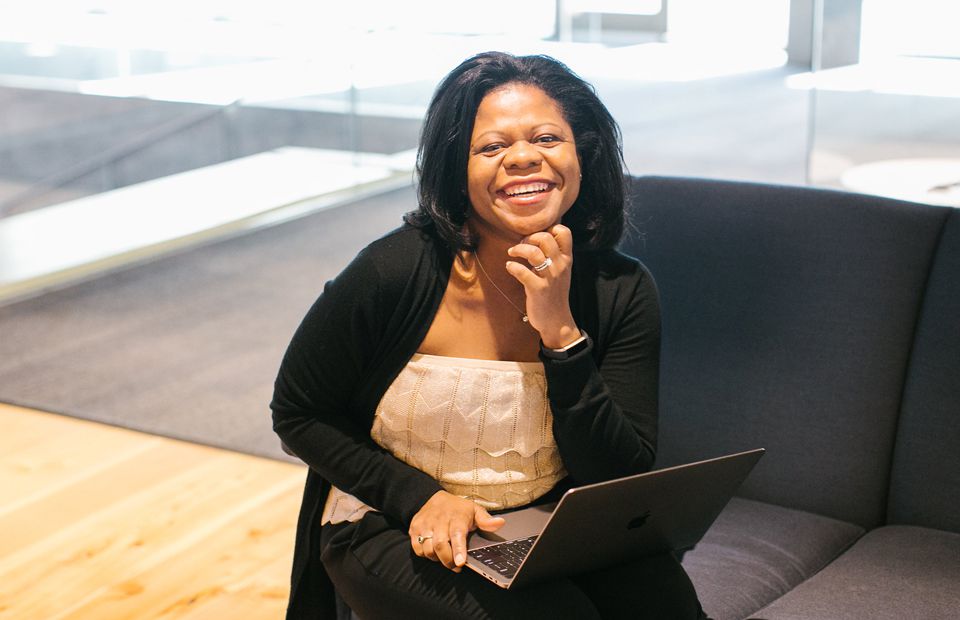
Best tip for leading a meeting?
Prepare. Make sure you understand the context and understanding of the situation, and the outcomes you are trying to drive in the meeting.
What’s one thing (besides your phone, wallet, and keys) you don’t leave home without?
I keep a birthday card with a quote by Marcus Solero that my girlfriend gave me several years ago: “A possibility was born the day you were born and it will live as long as you live.” It’s a reminder to be intentional and that every day is an opportunity to be a better version of myself.
Guilty pleasure?
Billecart-Salmon champagne. My girlfriend told me about it years ago and it’s now one of my favorites.

What about your best tip for negotiating, salary or otherwise?
Be soft on the people but tough on the issue. What I mean by this is to not make the negotiation personal, but still be firm on driving a solution.
Best advice anyone ever gave you?
“If you are waiting for someone to give you permission to be powerful, you’ll be waiting a long time." — My mom
Best advice for someone just starting their career?
Find out what you're passionate about and what you’re actually good at—the intersection of those two things will make you unstoppable.
And hire rock stars. I know it sounds cliché. But if you hire great people, you can move out of their way and allow them to be great leaders. Then you’re spending less time being a micromanager of many, many people, and you can scale. Scaling, to me, is about efficiently doing the most with what you have.
What would you do if you inherited millions and didn’t have to work anymore?
This is funny (but true!): I would be doing exactly what I’m doing today. I'd lead an organization, serve on boards, and make an impact in my community.
Have you made any major mistakes/failed in your career?
When I was leaving PayPal to go to Joyent, which was a 20-person small startup company, I said to myself that no matter what happened, I would learn something. That gave me the faith to leave a very nice, very high-growth company to go to a startup. Ultimately what happened is we competed against Amazon Web Services, or AWS, and...you probably know what happened. They took off and pretty much ate everyone’s lunch.
But it wasn’t a total failure. I said I would learn cloud computing, and actually many years later that would help me with Intuit.
Learning from failure, learning from things not working out as you’d expected, but having a reason that you’ll at least learn something in spite of it all, is a calculated risk. And we need to take more risks.
You May Also Like
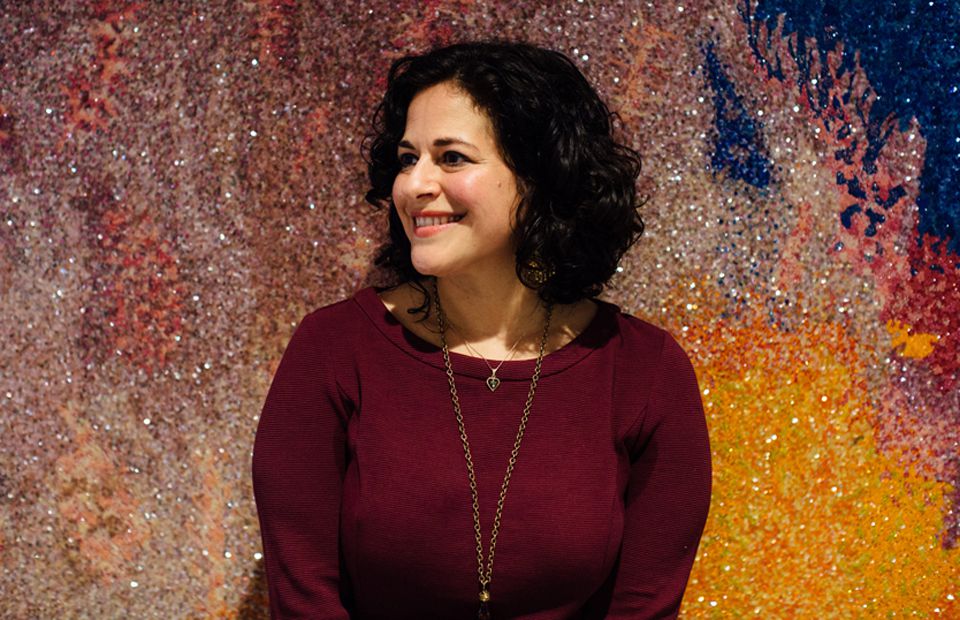
Consumer Goods
Our New Dream Job? Vice President of Social Consciousness & Innovation
"The truth is, having a more responsible supply chain or more responsible business is made up of lots of small actions. And one thing that I really love about my work is that nothing is black and white. It's all gray space."
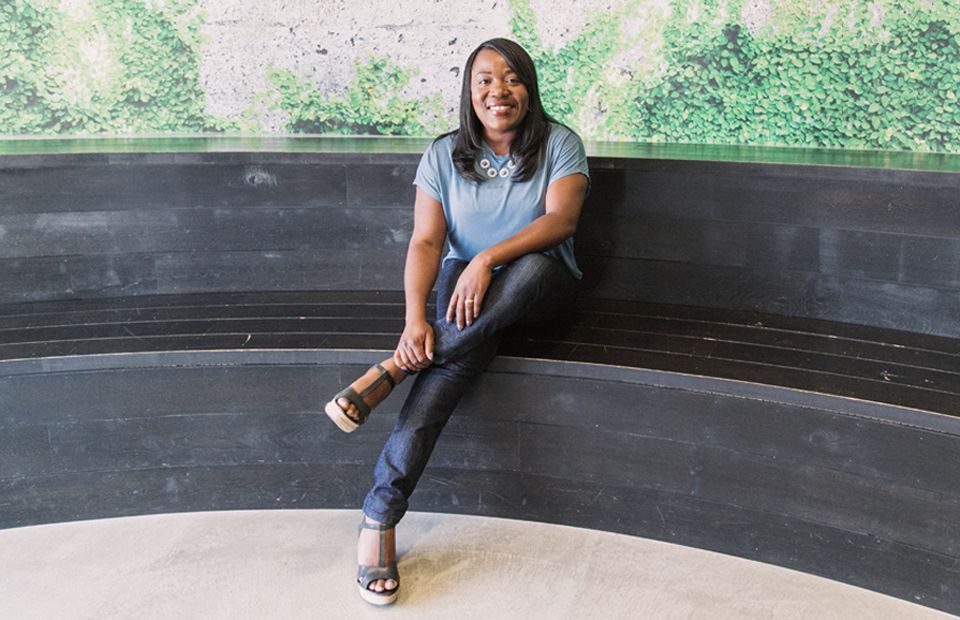
Consumer Services, Technology
A Top Lawyer Talks Leadership, Transparency, and a Music Empire's Goals for Diversity
As Chief Counsel at Pandora, Adelmise Warner has a few thoughts on leaning in.

Consumer Goods
Rising Tide Society's Founder on Why Not Everyone's Cut Out for Entrepreneurship
Natalie Franke on creative entrepreneurship and her journey with Rising Tide Society
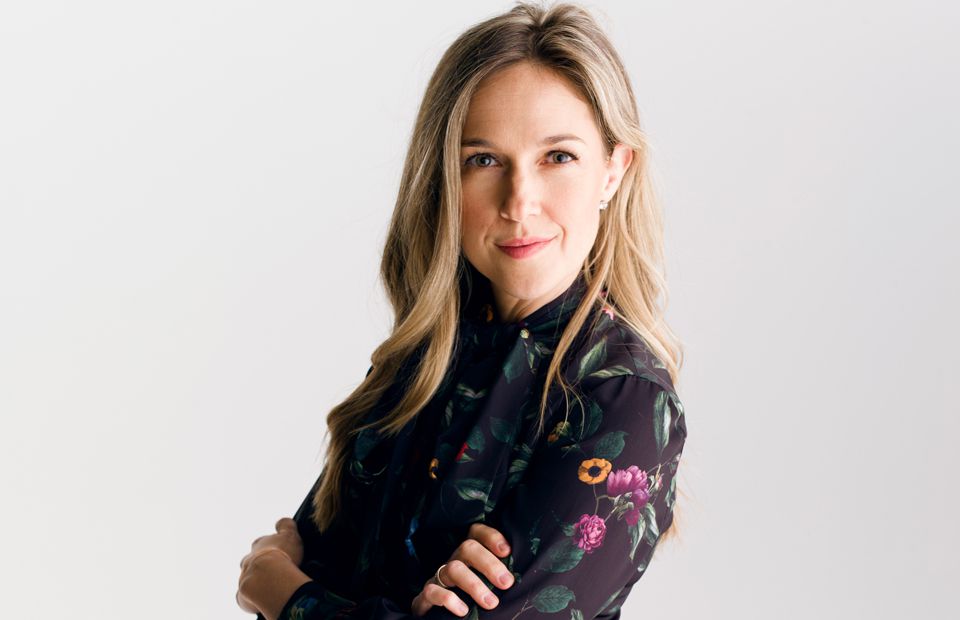
Consumer Services, Technology
Here's How a Female V.P. at a Tech Startup Faces the Gender Gap
Nikki Pechet on writing your own maternity leave policy and taking a job for joy, not money.
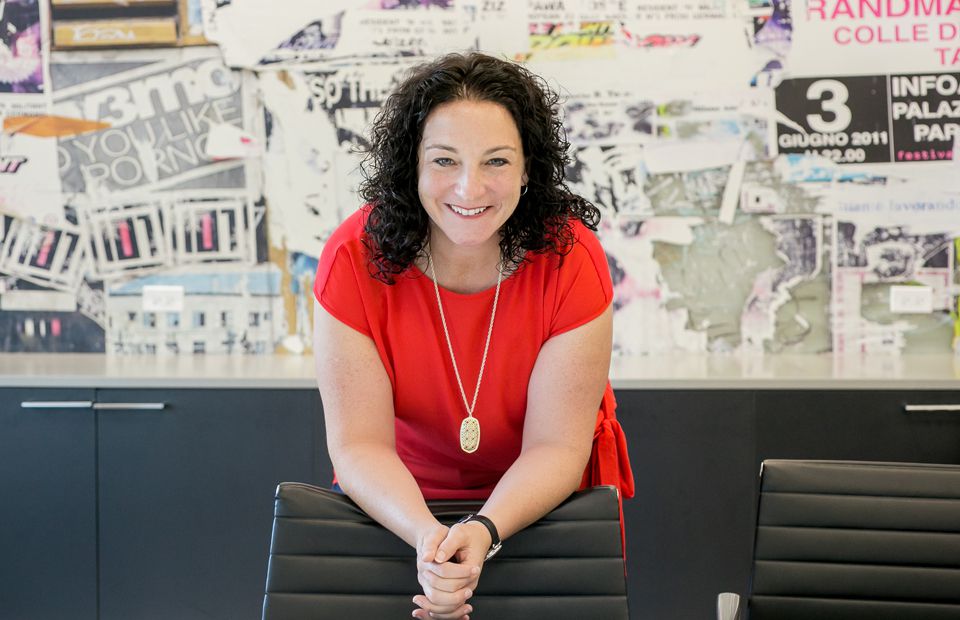
Consumer Goods, Technology
A Sales V.P. on What It's Like to Work at Pandora
Casey Forbes is living an audiophile's dream career.
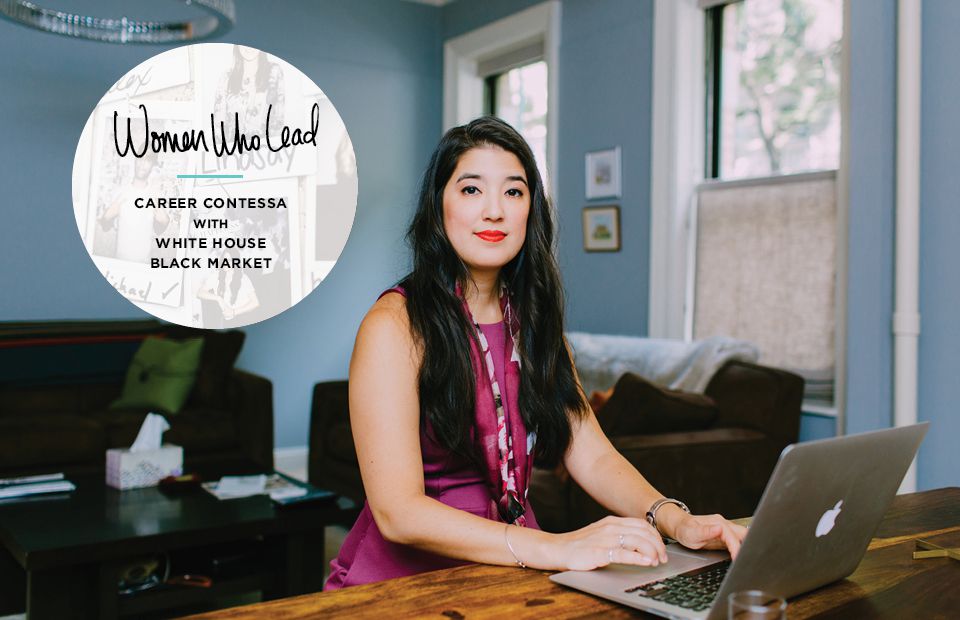
Consumer Services, Education, Finance
Women Who Lead: Alexandra Dickinson, Founder and CEO of Ask For It
On taking risks and asking for more—always.
Get the Best Career Advice Delivered To Your Inbox
Join our newsletter to stay in the loop.
